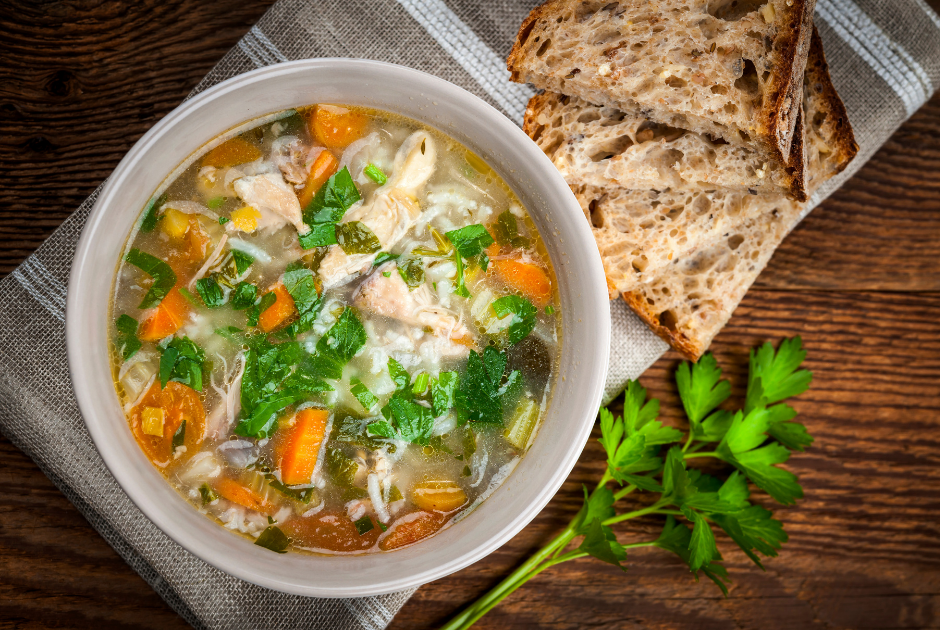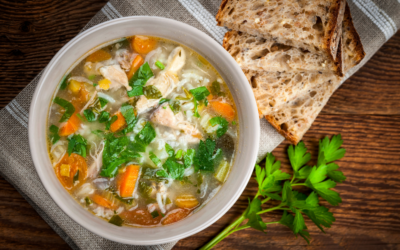This newsletter is about my current experience with Covid-19, and the lessons I learned that can possibly help you to prevent it and lessen your symptoms if you have it.
———————————–
Wow! The rapid test was negative, but I still wasn’t feeling well.
A half hour later, encouraged by a non-medical close friend with Covid whose rapid test was negative, and PCR was positive, I went to a booth on the street for the PCR test, which would take 24 hours, and one at a doctor’s office with a same day result. I needed to know as soon as possible if I had Covid.
I was stunned when I got the call and the email a few hours later. You have Covid! The second PCR confirmed the diagnosis the next day.
For two years I had managed to evade the virus.
How and where did I contract it? There were a few opportunities where I didn’t wear a mask for prolonged time over the prior weekend and was possibly exposed.
What were my symptoms?
Headache, fatigue, fever, muscle aches, joint aches, sore throat, nasal congestion, decreased appetite, and a little later in the course, sensations in my fingers and toes.
I immediately got into bed and began hydrating with hot clear fluids and started a supplement protocol.
I ordered chicken soup from a local deli and “doctored” it up with fresh garlic, fresh ginger, fresh onion, turmeric powder, black pepper(activates turmeric), parsley, and a squeeze of fresh lemon.(6) (I call it Dr. Jill’s Magic Soup). I topped it off with fresh cilantro. I also ordered fresh squeezed orange juice. Both the warmth from the soup and the delicious tasting fresh squeezed OJ quenched my parched throat.

A study in the academic medical journal, CHEST, “suggests that chicken soup may contain a number of substances with beneficial medicinal activity. A mild anti-inflammatory effect could be one mechanism by which the soup could result in the mitigation of symptomatic upper respiratory tract infections.”(1)
“Of course, chicken soup has benefits beyond its potential medicinal value. Chicken soup, often made by a lengthy and loving process, can provide real psychosocial support. “(2)
I must say that I felt cared for by the woman taking my order for the chicken soup. I also got calls from various colleagues, friends, and family members checking in on me. These other “chicken soups”(2) also helped me feel loved and cared for. My Doctor also called me every day.
What did I learn from getting Covid?
1. Early diagnosis and treatment is important.
a. If you are not feeling well, and your rapid antigen test is negative, get a PCR.
b. I ended up not taking conventional medicine for Covid, as I continued to improve, and my fever was gone the second day. I did take Tylenol twice while I was sick in the first few days, and I started supplements and Chinese herbs. Would it have helped me to get better quickly if I took the Paxlovid or the IV Monoclonal antibodies? I don’t know. The decision to take these meds must be made with your physician as there are contraindications and drug interactions that need to be accounted for. For some people, these treatments have helped them get better quickly.
c. Not every one will have the same symptoms from Covid. Some people lose taste and smell, and could have diarrhea in addition to other symptoms. Everyone is different and some people will recover quicker than others.
2. Make sure you are getting enough Vit C, D, Zinc, and Selenium. Having adequate amounts in your diet and through supplements may help protect you from Covid. I started higher doses of Vitamin C, Vitamin D, than I had been taking, and continued the Zinc. These have been shown to possibly prevent and be helpful in treatment of Covid because of their “antioxidant, antiinflammatory, antithrombotic, antiviral, and immuno-modulatory functions.”(3,4)

3. I also started a Quercetin supplement, a powerful anti-inflammatory and anti-viral flavonol found in fruits and veggies(see list of foods in reference 4 below), and N-Acetyl-L-Cysteine (NAC), a precursor to Glutathione, a powerful antioxidant and anti-inflammatory agent.(4,5)
4. Hydration with hot clear fluids including boiled water and honey. Honey in Chinese Medicine has been used to help lung function. There is some evidence that honey has antiviral properties and may improve clinical symptoms of Covid. More research is needed.(7) Chicken soup with garlic, turmeric, onion, ginger, etc. as discussed above. Fluids can help decrease mucous viscosity, and help treat dehydration, especially when you have a fever and are sweating. (8)
5. Rest!! This was hard for me because I felt guilty for resting and sleeping. I would have told my patients to rest. My body needed to sleep and rest, and I tried to obey it. Our bodies have to heal, and they need to rest and sleep. Listen to your body. To help prevent Covid, get good quality sleep.
6. Have support from your friends, co-workers, and family. Even texts can make you feel cared for and needed.
7. Wash your hands with soap and warm water for at least 20 seconds to prevent the spread.
8. Use your judgment about mask wearing when you might be at risk of infection.
I hope this information has been helpful for you. I continue to improve and will be back at work next week. Please remember to discuss supplement and medication dosages with your physician and health provider. Not every supplement is appropriate for a person and the protocol must be individualized.
To Your Health,
Dr. Jill
Past Newsletters:
Please feel free to read my past Newsletters on my blog Dr. Jill Baron Newsletters and Blog which has helpful tips for you to feel good and optimize your health.
Feel Free to Forward to a Friend:
If a friend has forwarded you this email, I invite you to receive my Newsletter by clicking on the link Dr. Jill Newsletter Sign Up. After filling out the form, you will receive a Stress Management Guide gift in your inbox!
References:
1. Rennard BO, Ertl RF, Gossman GL, Robbins RA, Rennard SI. Chicken soup inhibits neutrophil chemotaxis in vitro. Chest. 2000 Oct;118(4):1150-7. doi: 10.1378/chest.118.4.1150. PMID: 11035691.
2. Rennard SI, Kalil AC, Casaburi R. Chicken Soup in the Time of COVID. Chest. 2020;158(3):864-865. doi:10.1016/j.chest.2020.04.044
3. Pedrosa LFC, Barros ANAB, Leite-Lais L. Nutritional risk of vitamin D, vitamin C, zinc, and selenium deficiency on risk and clinical outcomes of COVID-19: A narrative review. Clin Nutr ESPEN. 2022;47:9-27. doi:10.1016/j.clnesp.2021.11.003
4. Septembre-Malaterre A, Boumendjel A, Seteyen AS, et al. Focus on the high therapeutic potentials of quercetin and its derivatives. Phytomed Plus. 2022;2(1):100220. doi:10.1016/j.phyplu.2022.100220
5. De Flora S, Balansky R, La Maestra S. Rationale for the use of N-acetylcysteine in both prevention and adjuvant therapy of COVID-19. FASEB J. 2020;34(10):13185-13193. doi:10.1096/fj.202001807
6. Mrityunjaya M, Pavithra V, Neelam R, Janhavi P, Halami PM, Ravindra PV. Immune-Boosting, Antioxidant and Anti-inflammatory Food Supplements Targeting Pathogenesis of COVID-19. Front Immunol. 2020 Oct 7;11:570122. doi: 10.3389/fimmu.2020.570122. PMID: 33117359; PMCID: PMC7575721.
7. Dilokthornsakul W, Kosiyaporn R, Wuttipongwaragon R, Dilokthornsakul P. Potential effects of propolis and honey in COVID-19 prevention and treatment: A systematic review of in silico and clinical studies. J Integr Med. 2022 Mar;20(2):114-125. doi: 10.1016/j.joim.2022.01.008. Epub 2022 Jan 31. PMID: 35144898; PMCID: PMC8801981.
8. Guppy MP, Mickan SM, Del Mar CB, Thorning S, Rack A. Advising patients to increase fluid intake for treating acute respiratory infections. Cochrane Database Syst Rev. 2011;2011(2):CD004419. Published 2011 Feb 16. doi:10.1002/14651858.CD004419.pub3
Disclaimer: Please note that the content on this Newsletter does not constitute medical advice. Please consult with a physician before making any medical, nutritional, or lifestyle changes recommended in this Newsletter.


